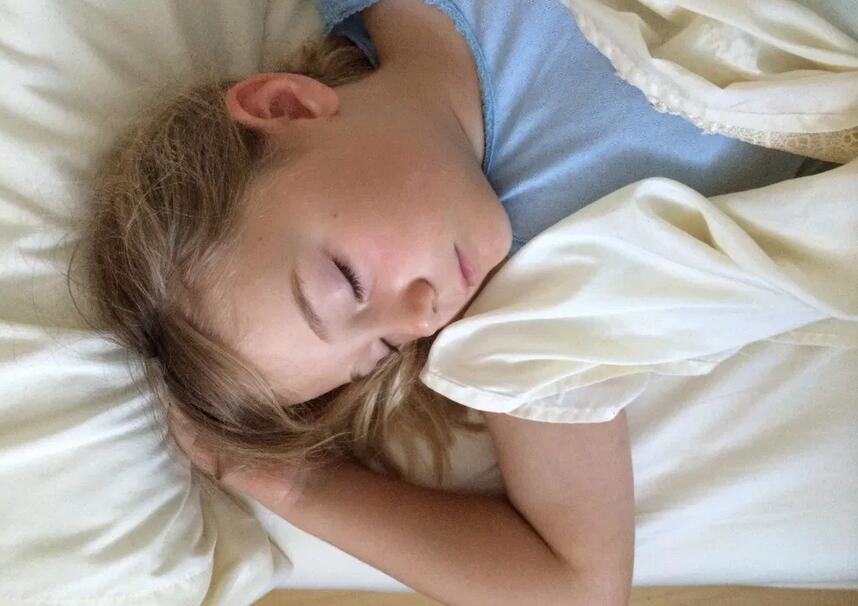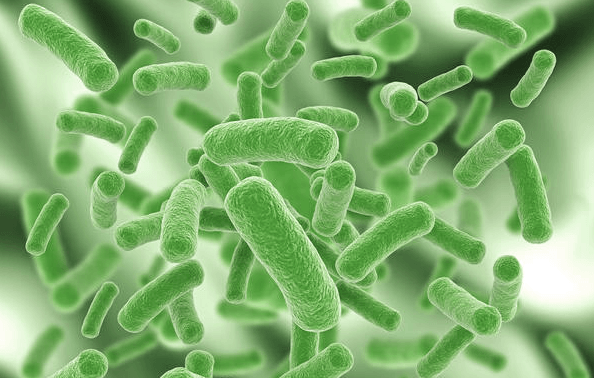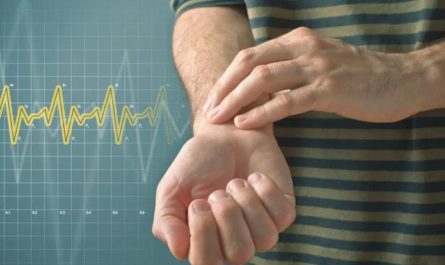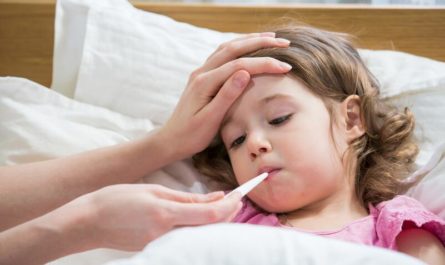There’s nothing quite as unsettling as waking up drenched in sweat, your pajamas and sheets soaked through. Night sweats, or excessive perspiration during sleep, can be incredibly disruptive to your rest and overall well-being. While the occasional night sweats are normal, frequent episodes may signal an underlying health issue.
For women, night sweats can occur at various life stages and can be triggered by a range of factors, from hormonal fluctuations to certain medical conditions. In this article, we’ll explore 16 common causes of night sweats in women. This may help you better understand this perplexing phenomenon and when to seek medical attention.

16 Common Causes of Night Sweats in Women
1. Menopause and Perimenopause
One of the most well-known causes of night sweats in women is the hormonal changes associated with menopause and perimenopause. As estrogen levels decline during this time, many women experience hot flashes and night sweats as a result.
According to the National Sleep Foundation, up to 80% of women in the United States experience night sweats during menopause. These episodes can be particularly disruptive to sleep and overall quality of life, often lasting for several years after the onset of menopause.
During menopause, the fluctuations in estrogen levels can affect the hypothalamus, the part of the brain responsible for regulating body temperature. This can cause the body’s internal thermostat to become dysregulated, leading to sudden feelings of intense heat and subsequent sweating.
2. Pregnancy
Hormonal shifts during pregnancy can also trigger night sweats in many women. As the body adjusts to the influx of hormones like estrogen and progesterone, it can disrupt the body’s temperature regulation mechanisms. This can lead to excessive sweating at night.
A study published in the journal Sleep Medicine found that around 27% of pregnant women reported experiencing night sweats that disturbed their sleep, with the episodes peaking around the 30th week of pregnancy.
The hormonal changes during pregnancy can affect the hypothalamus and the body’s ability to regulate temperature. Additionally, the increased metabolic demands of pregnancy can contribute to increased body heat and sweating.
3. Thyroid Disorders
The thyroid gland plays a crucial role in regulating various bodily functions, including metabolism and temperature control. When the thyroid is overactive (hyperthyroidism) or underactive (hypothyroidism), it can cause night sweats as a symptom.
In hyperthyroidism, the increased metabolic rate can lead to excessive heat production and sweating. Hypothyroidism can cause sensitivity to cold temperatures and subsequent sweating as the body tries to regulate its temperature.
Other symptoms of thyroid disorders that may accompany night sweats include:
- Hyperthyroidism: weight loss, rapid heartbeat, anxiety, fatigue
- Hypothyroidism: weight gain, constipation, dry skin, fatigue
If you suspect a thyroid disorder may be causing your night sweats, it’s essential to have your thyroid hormone levels checked by a healthcare provider.

4. Infections and Illnesses
Night sweats can also be a symptom of various infections and illnesses, as the body’s immune system works to fight off the invading pathogens or diseases. Some common conditions that may cause night sweats include:
- Viral infections (e.g., influenza, HIV)
- Bacterial infections (e.g., tuberculosis, endocarditis)
- Cancers (e.g., lymphoma, leukemia)
- Autoimmune disorders (e.g., rheumatoid arthritis, lupus)
In these cases, night sweats are often accompanied by other symptoms like fever, chills, fatigue, and weight loss, depending on the underlying condition.
Night sweats can be one of the first signs of an underlying infection or illness, as the body’s immune response triggers an increase in body temperature and subsequent sweating.
If you experience persistent night sweats along with other concerning symptoms, it’s crucial to seek medical attention promptly for proper diagnosis and treatment.

5. Anxiety and Stress
While not a direct cause, anxiety, and chronic stress can contribute to night sweats in women. When the body is in a state of heightened stress or anxiety, it can trigger the release of hormones like cortisol and adrenaline. This can affect the body’s temperature regulation mechanisms.
Additionally, anxiety and stress can disrupt sleep patterns, leading to restlessness and increased body temperature, which may result in night sweats.
Stress and anxiety can also exacerbate other conditions that may cause night sweats, such as hormonal imbalances or thyroid disorders. Addressing stress through techniques like meditation, yoga, or counseling can help alleviate night sweats and improve overall well-being.
6. Medications
Certain medications can also cause night sweats as a side effect. Some common culprits include:
- Antidepressants (e.g., selective serotonin reuptake inhibitors, tricyclic antidepressants)
- Hormone therapy (e.g., estrogen, testosterone)
- Diabetes medications (e.g., metformin)
- Opioid pain relievers
- Nonsteroidal anti-inflammatory drugs (NSAIDs)
If you’ve recently started a new medication and have noticed an increase in night sweats, it’s essential to discuss this side effect with your healthcare provider. In some cases, adjusting the dosage or switching to an alternative medication may help alleviate the night sweats.
It’s also important to note that abruptly stopping certain medications, such as antidepressants or hormone therapy, can also trigger night sweats as a withdrawal symptom.
7. Obesity and Weight Gain
Excess weight and obesity can contribute to night sweats in women due to the increased insulation provided by excess body fat. This insulation can trap heat and make it more difficult for the body to regulate its temperature effectively, leading to excessive sweating during sleep.
Additionally, obesity is often associated with other conditions that can cause night sweats, such as sleep apnea, diabetes, and hormonal imbalances.
Losing excess weight through a balanced diet and regular exercise can help alleviate night sweats and improve overall health. However, it’s important to note that rapid weight loss can also trigger night sweats in some individuals. So a gradual and sustainable approach is recommended.
8. Sleep Disorders
Certain sleep disorders, such as obstructive sleep apnea (OSA), can also be linked to night sweats. In OSA, repeated interruptions in breathing during sleep can cause drops in oxygen levels, which may trigger the body’s sweating response as it tries to regulate its temperature.
Other sleep disorders, like restless leg syndrome or periodic limb movement disorder, can also contribute to night sweats by disrupting sleep and increasing body temperature.
Treating the underlying sleep disorder, whether through lifestyle changes, oral appliances, or continuous positive airway pressure (CPAP) therapy, can help alleviate night sweats and improve overall sleep quality.
9. Neurological Conditions
Night sweats can also be a symptom of various neurological conditions that affect the body’s temperature regulation mechanisms. Some examples include:
- Stroke
- Parkinson’s disease
- Multiple sclerosis
- Spinal cord injuries
- Autonomic neuropathy (nerve damage affecting internal organs)
In these cases, night sweats may be accompanied by other neurological symptoms, such as muscle weakness, tremors, or cognitive impairment.
Neurological conditions can disrupt the communication between the brain and the body’s temperature regulation systems, leading to dysregulation and excessive sweating. Treating the underlying condition and managing symptoms through medication or therapy can help alleviate night sweats.
10. Idiopathic Hyperhidrosis
Idiopathic hyperhidrosis is a condition characterized by excessive sweating without an identifiable underlying cause. While it can affect both men and women, some studies suggest that women may be more prone to this condition, particularly during certain life stages like menopause.
Idiopathic hyperhidrosis can cause night sweats, as well as excessive sweating during the day, and can significantly impact quality of life.
Treatment options for idiopathic hyperhidrosis may include:
- Antiperspirants containing aluminum chloride
- Oral medications like anticholinergics or beta-blockers
- Botulinum toxin injections
- Surgical procedures to disrupt sweat gland function
Working closely with a dermatologist or healthcare provider can help identify the most appropriate treatment plan for managing this condition.

11. Alcohol and Substance Abuse
Excessive alcohol consumption and substance abuse can also contribute to night sweats in women. Alcohol and certain drugs can disrupt the body’s temperature regulation mechanisms, leading to excessive sweating during sleep.
Additionally, alcohol and substance abuse can exacerbate other conditions that may cause night sweats, such as anxiety, sleep disorders, and hormonal imbalances.
If you suspect that your night sweats may be related to alcohol or substance abuse, it’s essential to seek professional help and support to address the underlying addiction.
Quitting or reducing your intake of these substances can often alleviate night sweats and improve overall health and well-being.
12. Diabetes
Both type 1 and type 2 diabetes can cause night sweats in women. In diabetes, night sweats can be triggered by low blood sugar levels (hypoglycemia), which can activate the body’s stress response and lead to excessive sweating.
Additionally, nerve damage (neuropathy) associated with diabetes can affect the body’s ability to regulate temperature, potentially contributing to night sweats.
Maintaining good blood sugar control through a balanced diet, exercise, and medication (if prescribed) can help reduce the risk of night sweats in women with diabetes.
13. Gastroesophageal Reflux Disease (GERD)
Gastroesophageal reflux disease, or GERD, is a condition in which stomach acid frequently flows back into the esophagus, causing heartburn and other symptoms. While not commonly associated with night sweats, some women with GERD may experience excessive sweating during sleep as a result of this condition.
The discomfort and disruption caused by acid reflux can trigger the body’s stress response, leading to sweating. Additionally, some medications used to treat GERD, such as proton pump inhibitors, have been linked to night sweats as a potential side effect.
If you suspect that your night sweats may be related to GERD, it’s important to discuss this with your healthcare provider. Treating the underlying acid reflux through lifestyle changes, medication, or surgical interventions may help alleviate the night sweats.
14. Carcinoid Syndrome
Carcinoid syndrome is a rare condition that can occur in individuals with certain types of neuroendocrine tumors, which are tumors that develop from cells that produce hormones. One of the hallmark symptoms of carcinoid syndrome is flushing and sweating, which can occur at any time, including during sleep.
In carcinoid syndrome, the tumors release excessive amounts of hormones, such as serotonin and histamine, which can cause a range of symptoms, including diarrhea, abdominal pain, and flushing or sweating episodes.
Night sweats associated with carcinoid syndrome can be particularly severe and disruptive, often soaking through bedding and clothing.
If you experience unexplained and persistent night sweats, especially in conjunction with other symptoms like diarrhea or abdominal pain, it’s important to seek medical attention.
15. Lymphoma
Lymphoma, a type of cancer that affects the lymphatic system, can also cause night sweats in some women. Night sweats are a common symptom of both Hodgkin’s lymphoma and non-Hodgkin’s lymphoma, and they can be particularly severe and drenching.
In lymphoma, night sweats are often accompanied by other symptoms, such as unexplained weight loss, fever, and swollen lymph nodes. These symptoms, known as “B symptoms,” can be indicators of more advanced or aggressive forms of lymphoma.
If you experience persistent night sweats along with other concerning symptoms, it’s crucial to seek medical attention promptly. Early diagnosis and treatment of lymphoma can improve outcomes and increase the chances of successful management or remission.
16. Tuberculosis
Tuberculosis (TB), a serious bacterial infection that primarily affects the lungs, can also cause night sweats in women. Night sweats are one of the classic symptoms of active tuberculosis, along with fever, cough, and weight loss.
In tuberculosis, the body’s immune system mounts a response to the bacterial infection, which can trigger night sweats as a result of increased metabolic activity and inflammation. Night sweats associated with TB can be particularly severe and drenching, often soaking through bedding and clothing.
If you experience persistent night sweats, especially in conjunction with other symptoms like cough, fever, or unexplained weight loss, it’s important to seek medical attention promptly.
When should you see a doctor about your night sweats?
If you experience any of the following, it is recommended to seek medical attention for your night sweats:
1. Persistent or severe night sweats: If you consistently wake up drenched in sweat or experience night sweats that disrupt your sleep regularly, it is important to see a doctor.
2. Unexplained weight loss: If you are experiencing night sweats along with unexplained weight loss, it could be a sign of an underlying condition that requires medical evaluation.
3. Fever or other symptoms: Night sweats accompanied by fever, chills, cough, fatigue, or other symptoms could indicate an infection or other medical condition that needs to be addressed.
4. Menopause-related symptoms: Women going through menopause often experience night sweats. However, if the symptoms are severe, affecting your quality of life, or if you have other concerning symptoms, it is advisable to consult a doctor.
5. Night sweats in children: If your child frequently experiences night sweats, it is important to consult a pediatrician to rule out any underlying health issues.
6. Medication-related night sweats: If you suspect that your night sweats are a side effect of a medication you are taking, it is recommended to consult your healthcare provider to explore alternative options.






